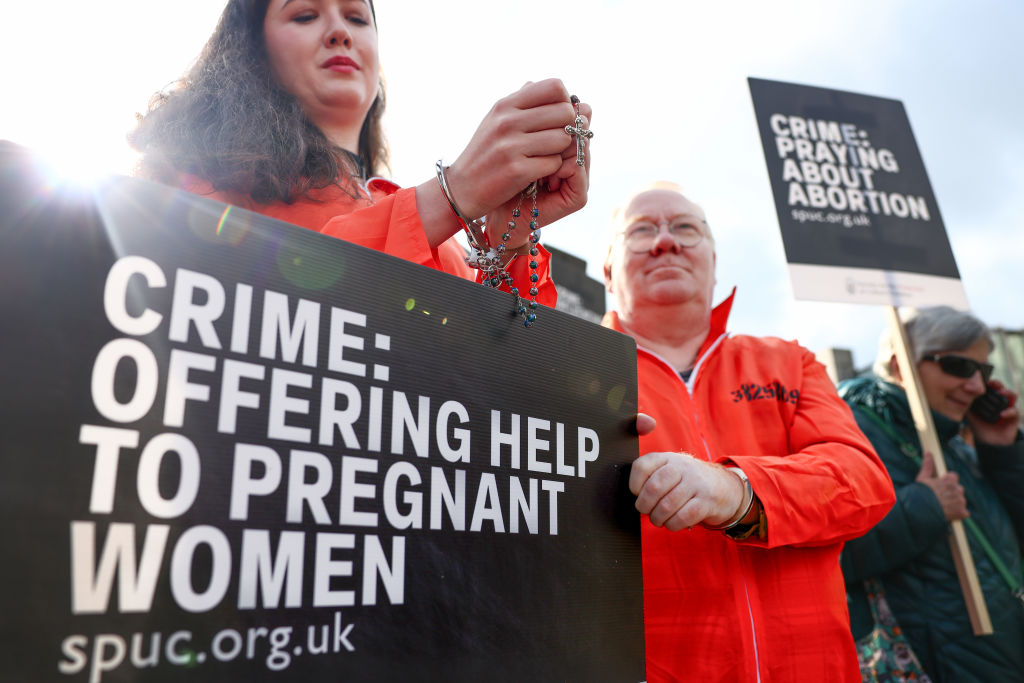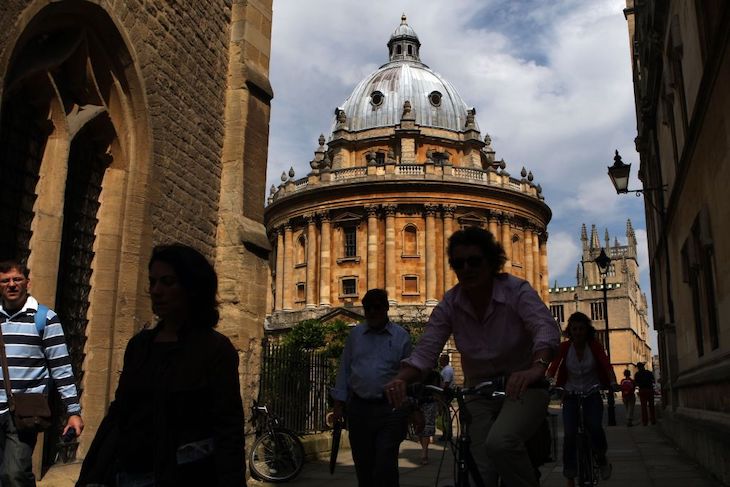As of today, in Britain, it will be illegal to ‘intentionally or recklessly influence any person’s decision to access… abortion services’ within approximately 500 feet of the building. If the national law mirrors local prototypes, it may even prohibit silent prayer, or offers of help.
Politicians voted to implement these localised bans – known as ‘buffer zones’ – under the guise of needing to restrict harassment near abortion clinics. A noble cause, yet one without a basis of need. Harassment is already illegal in the UK. A government review proved that in mild-mannered England, instances of harassment near clinics are ‘relatively few’, and easily policed under existing laws. Instituting buffer zones would ‘not be a proportionate response’, the review concluded.
Despite the evidence against them, buffer zones were voted in nonetheless – passed under the watch of the Conservative government, and now implemented under Labour. In practice, the loose wording of the new ban – criminalising mere influence – could go far further than policing ‘harassment’, and result in prosecutions on the basis of consensual conversations. Could a parent be criminalised for advising their daughter? A friend fined for sharing a word of concern? What about an offer of help from a crisis pregnancy volunteer?
This isn’t as far-fetched as it may seem.
Where ‘buffer zones’ have already been installed by local authorities, several prosecutions have resulted. Livia Tossici-Bolt, a retiree, will face trial in March for holding a sign reading ‘Here to talk if you want.’ In other instances, people have faced trial for merely praying silently in their heads.
In Birmingham last year, Isabel Vaughan-Spruce was arrested for her thoughts. She was tried, found innocent, and arrested yet again weeks later for the very same, peaceful, imperceptible prayers. After an arduous legal ordeal, she was finally compensated £13,000 for her unlawful arrests.
In Bournemouth, Adam Smith-Connor, an army veteran who served in Afghanistan, was convicted of breaching a safe zone after praying silently outside an abortion centre and refusing to move on. Adam was standing on a public green, with his back to the clinic so as not to give the impression that he was trying to ‘influence’ anyone. He prayed in his head about a child that he had lost to abortion 22 years prior. If he had thought about bank robbery – or preached about climate change – he would not have been charged. The content of his thoughts – abortion – was critical to his prosecution. The judge handed him a £9,000 cost order as a result. With support from legal charity ADF UK, he’s appealing his verdict.
The differing rulings on such similar cases expose the subjectivity of ‘buffer zones’. What one police officer may deem to be a woman’s mere harmless presence could be interpreted by another to be a violation. Citizens should know what’s within the rules. But a vague ban on ‘influence’ will likely chill freedom of speech and thought, with people exposing themselves to significant legal costs to obtain clarity that should have been provided by the legislation.
Ironically, in banning free speech for pro-life volunteers, the government has equally restricted the right of women in crisis pregnancies to hear and receive information. When Alina Dulgheriu made an appointment at an abortion facility in 2011, she had lost her job, and had been abandoned by her boyfriend. She thought abortion was her only option. It was because of an interaction with a pro-life volunteer outside the clinic – a soon-to-be-forbidden conversation – that she found out about resources available to women in her position, from financial support, to housing, to the provision of baby supplies and a supportive community.
‘Removing the option to receive help to keep a child in case we feel offended is deeply patronising’, she said. ‘It assumes that women can’t make a decision for ourselves or that we might choose the wrong option.’
In a time when 50,000 knife crimes are recorded across England and Wales per year, and a rape is recorded in London every hour, it’s surprising to see government attention and public resources funnelled into punishing peaceful people, standing alone with their thoughts. The UK should urgently clarify its priorities – and its protections of basic human rights. The world is watching.







Comments